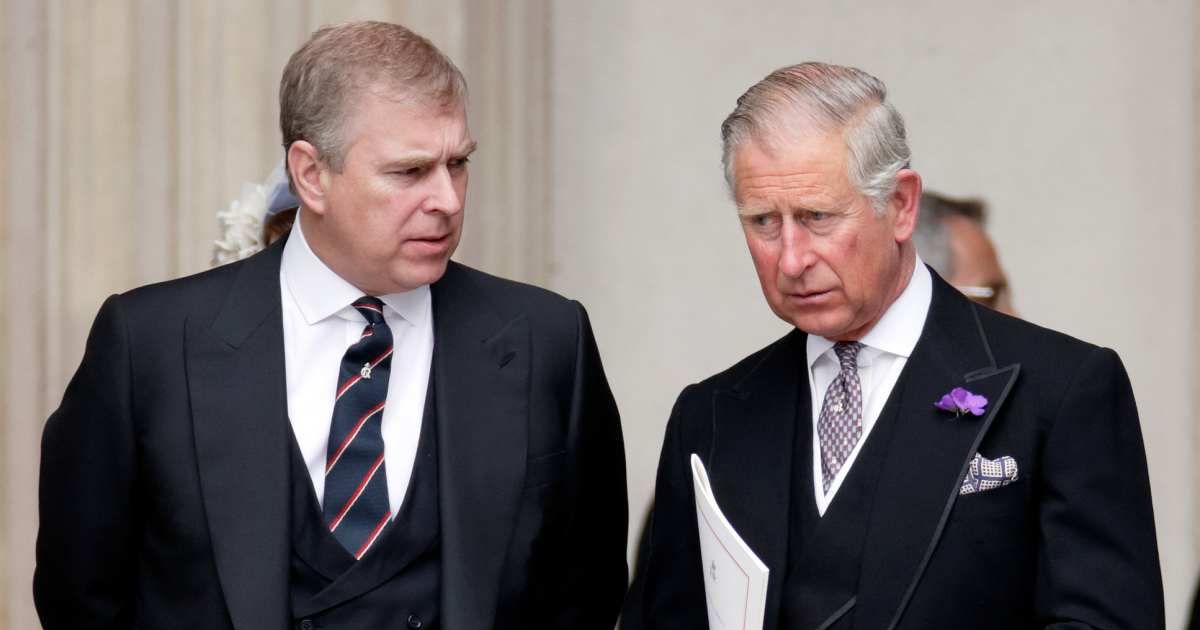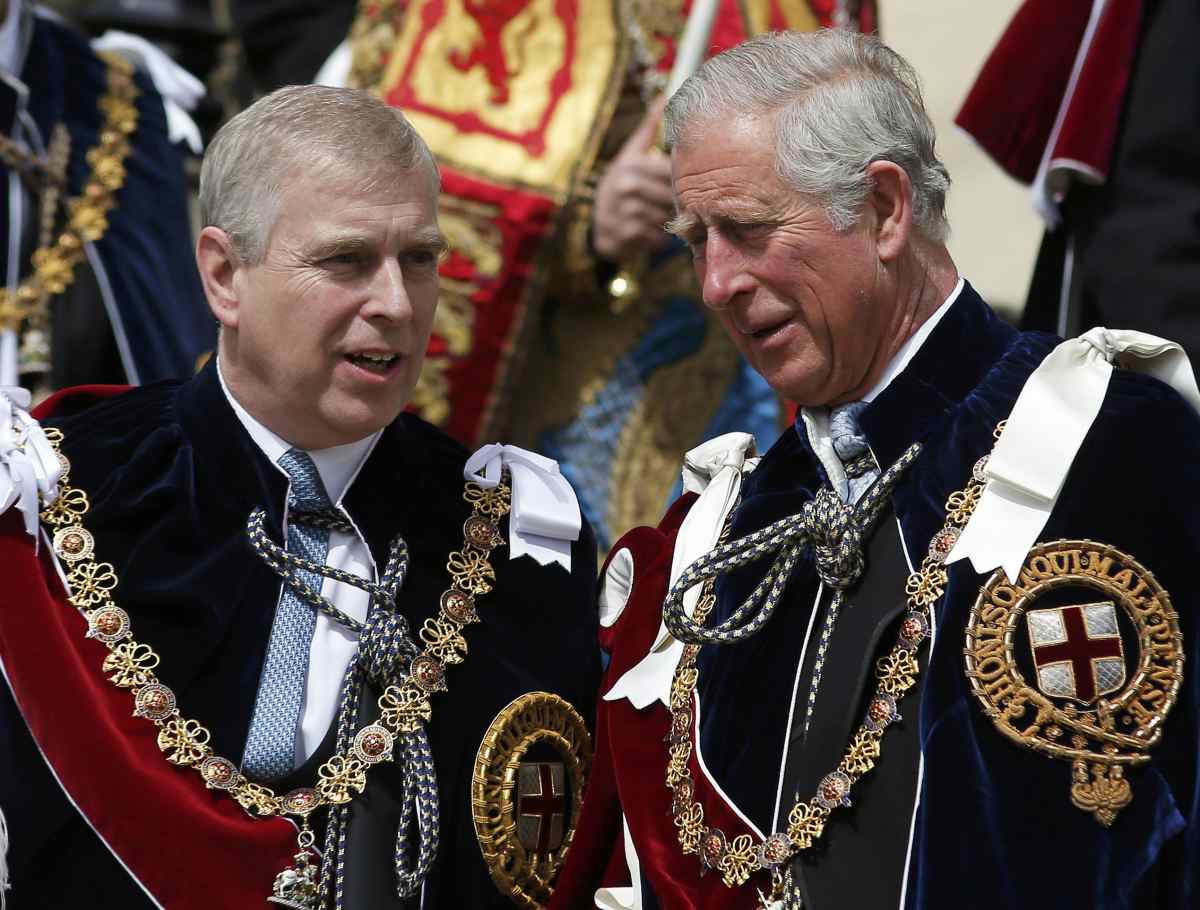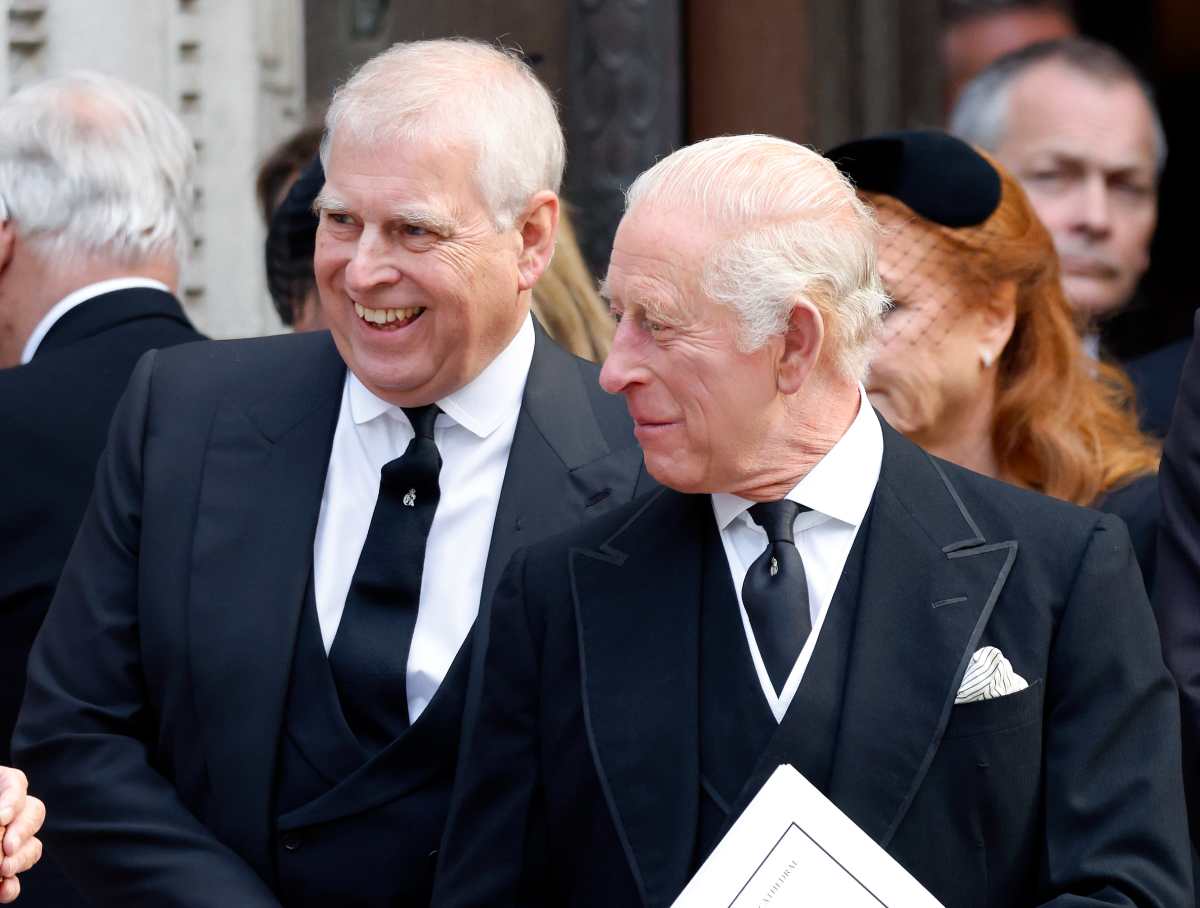King Charles' 'Ruthless' Threat to Shame Andrew Finally Drove Him to Give Up Titles, Says Source

Trigger Warning: This article contains themes of sexual abuse and suicide that some readers may find distressing.
King Charles finally set sentiment aside and placed royal duty above all when he drew a firm line in the sand with his brother, Prince Andrew. Reportedly, the sovereign had his mind set, and made sure either Andrew relinquished his Duke of York title voluntarily or the monarch would ensure it was taken from him, one way or another.

After days of speculation, the Duke blinked first. On Friday night, October 17, the 65-year-old released a formal statement announcing that he would cease using his duke title. Although it was a move long anticipated, it was not without the King issuing a veiled threat, in his resolve to protect the Crown from further mud slinging, in the face of Andrew’s reluctance to accept that the tide had turned against him.
Andrew’s well-phrased release that confirmed him relinquishing his titles was aimed at calm dignity, but nevertheless, the undertone of concession was clearly evident. He said, “In discussion with the King, and my immediate and wider family, we have concluded the continued accusations about me distract from the work of His Majesty and the royal family. I have decided, as I always have, to put my duty to my family and country first. I stand by my decision five years ago to stand back from public life.” He added, “With His Majesty’s agreement, we feel I must now go a step further. I will therefore no longer use my title or the honors which have been conferred upon me. As I have said previously, I vigorously deny the accusations against me.”

Leading up to the statement, a vigorous exchange reportedly transpired between the brothers, as per Palace insiders. According to the Daily Mail, the King made it brutally clear that if Andrew didn’t step away from his dukedom privately, official channels, namely Parliament, could be invoked to strip it from him. Charles’s preference was reportedly to avoid such constitutional drama, but his patience, honed over decades of princely diplomacy, had its limits. As for Andrew, the walls had been shutting in for some time, especially after his recent unearthed email, where he was caught red-faced about lying about his associations with Jeffrey Epstein.

The resurfacing of a 2011 email, in which Andrew told Epstein, “we’re in this together,” was the 'tipping point' for Charles and others in the Firm. A source said, “When the end came, it was relatively quick, swift, and ruthless. Andrew may not have been able to read the room, but the Palace could.”
Adding to the pressure was renewed scrutiny sparked by the upcoming release of Virginia Giuffre’s posthumous memoir. Giuffre, who tragically took her own life in April, had accused Andrew of sexual assault — claims Andrew has always vehemently denied. Her book, set for release on October 21, is said to revisit her alleged encounters with the Prince and the shadowy world of Epstein’s network. “In the end, for the wider good, Andrew saw sense,” a royal source reportedly shared. “The thought of him continuing to use the titles and honors that had been conferred upon him for another day, month, or year while other options were explored and enacted was intolerable, for the sake of the wider family.”
If you are being subjected to sexual abuse, or know of anyone who is, please call the National Sexual Assault Hotline at 800.656.HOPE (4673)
If you are having thoughts about taking your own life, or know of anyone who is, please contact The National Suicide Prevention Lifeline at 1-800-SUICIDE (784-2433)
